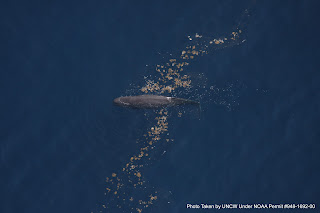
I have been struggling for weeks to write this post. I cannot explain it. I know I needed to, but there is just so much to say. Weird stuff like, feeling totally removed from a simple existence. Even though I try, I can't come close. Our fast- paced/instant gratification/convenient society seems light years apart from the more carefree/relaxed/jovial people of Fiji. Now you know why I've been struggling. The people and places we visited were like no other I have experienced in other parts of the world. The poorer communities in South Africa struggled for food and water yet were imbued in plastic trash. In Fiji, that is not the case.
 |
| Manta trawl deployed surface sampling |
Loading and unloading 50 bags and boxes of personal items, scuba and camera gear on vans, boats, taxis, and ferries was the hardest part of being in Fiji. We visited six locations in 15 days, Suva, Salea Village, Kioa Island, Taviuni, Suva Suva, and Wailani LaLa. Every beach I studied nearly devoid of the plastic fragments, wrappers, soda bottles, cigarette butts, and Styrofoam. Not that there weren't any plastics, but nothing like what I witnessed in Hawaii, Bermuda, Brazil, Cape Town South Africa, or Wrightsville Beach, NC. In fact, for the most part shoes were optional, even adult teams when playing rugby. People walked most everywhere and when they did, seldom was anyone carrying plastic beverage bottles, or Styrofoam cups of coffee, eating packaged food, or smoking. It was like taking a giant step back in time. Back before our over use of one-time use plastic single serving everything. And the results of being a society still relatively plastic-free bared witness on their beaches. Even our surface sampler revealed very little plastic. That said, all seven of our samples still contained plastics but from god knows where.
 |
| My cabin door starboard side |
From my cabin door I looked out and watched as we glided past island after island with communities tucked in the matrix of greenery. The people of Fiji harmoniously amid the jungle of trees, bamboo, and mossy grasses. No TVs, no radios blaring. Children playing outdoors everywhere.
It gave me hope that maybe, just maybe, the Fijians can bypass the use of plastic throw away everything and figure out a way to use their abundance of bamboo to make their packaging. In fact, while I was there, I shared with several of them my "
to-go" utensils made out of bamboo and encouraged them to find alternatives for plastics by using the multi-faceted bamboo. And by doing so they can avoid the use of natural resources like gas, coal, and petroleum, and not have to deal with the plastic stuff that doesn't biodegrade. Their streets would not be lined with plastics that will eventually wash out to sea. I told them by doing so they will enjoy their pristine environment a lot longer than we have. It was like I came from the future to tell them "don't do as we have done." I know that the odds are stacked up against such change, but I can hope, can't I?



